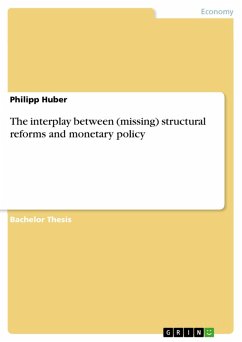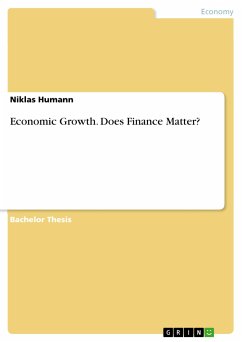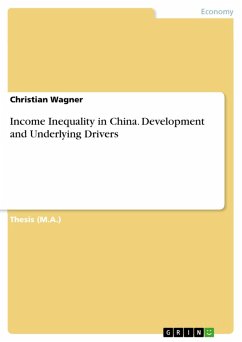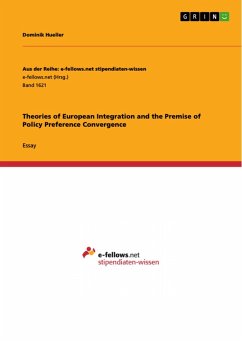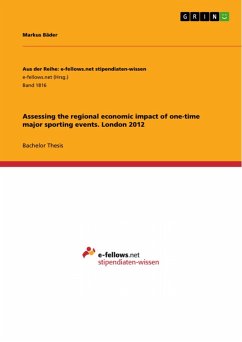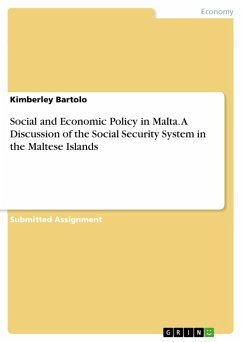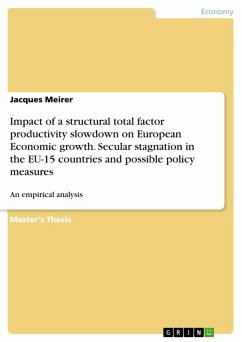
Impact of a structural total factor productivity slowdown on European Economic growth. Secular stagnation in the EU-15 countries and possible policy measures (eBook, PDF)
An empirical analysis
Versandkostenfrei!
Sofort per Download lieferbar
Statt: 47,95 €**
36,99 €
inkl. MwSt. und vom Verlag festgesetzt.
**Preis der gedruckten Ausgabe (Broschiertes Buch)
Weitere Ausgaben:

PAYBACK Punkte
0 °P sammeln!
Master's Thesis from the year 2020 in the subject Business economics - Economic Policy, grade: 1,5, Humboldt-University of Berlin, language: English, abstract: The aim of this thesis was to identify the background and determinants of the stagnating economic growth in the EU-15 countries and to evaluate whether the region has entered a secular stagnation. To this end, the inuence of a structural total factor productivity (TFP) slowdown on European economic growth was empirically examined. In order to obtain the results for this study, a logit panel regression was carried out with the EU-15 coun...
Master's Thesis from the year 2020 in the subject Business economics - Economic Policy, grade: 1,5, Humboldt-University of Berlin, language: English, abstract: The aim of this thesis was to identify the background and determinants of the stagnating economic growth in the EU-15 countries and to evaluate whether the region has entered a secular stagnation. To this end, the inuence of a structural total factor productivity (TFP) slowdown on European economic growth was empirically examined. In order to obtain the results for this study, a logit panel regression was carried out with the EU-15 countries over the period from 1950 to 2017. It became particularly clear that the TFP slowdowns increased over the years while TFP upswings decreased. This tendency can mainly be attributed to a lack of human capital, too little intra-European cooperation, too many regulatory hurdles and too much employment in the services sector. These highly structural factors and their inuence on TFP growth and, ultimately, economic growth, demonstrate that the EU-15 countries have fallen into an economic stagnation dynamic that is strongly reminiscent of the model of secular stagnation. Only the way in which policymakers deal with the current pandemic will show how strong and protracted the current stagnation of economic growth will be.
Dieser Download kann aus rechtlichen Gründen nur mit Rechnungsadresse in A, B, BG, CY, CZ, D, DK, EW, E, FIN, F, GR, HR, H, IRL, I, LT, L, LR, M, NL, PL, P, R, S, SLO, SK ausgeliefert werden.




